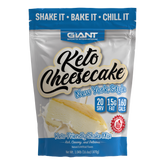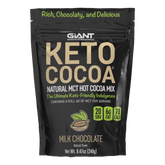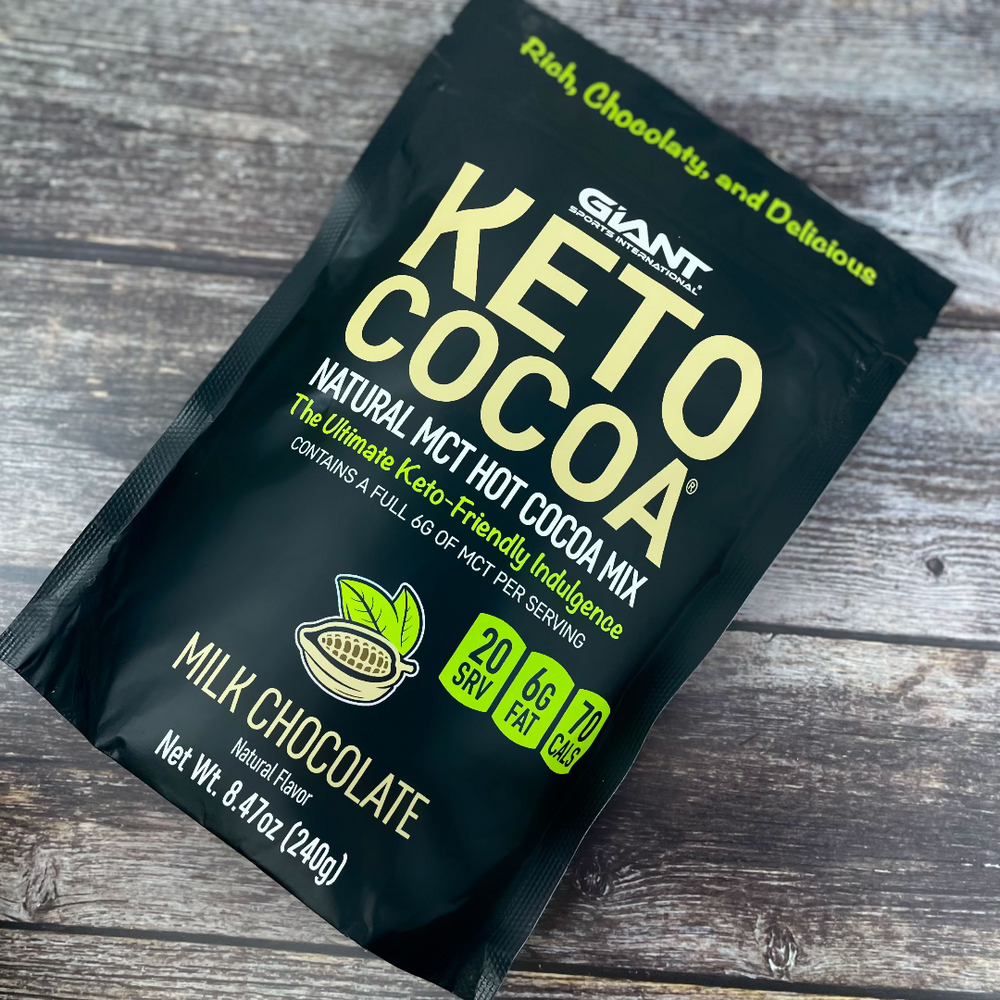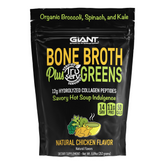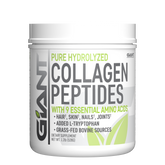Keto Supplements: The Top 10 Supplements You Need to Be Taking on a Keto Diet

If you're on a keto diet, then you know that supplements can be a huge help in reaching your goals. But with so many keto supplements on the market, it can be hard to figure out which ones are right for you. That's why we've put together this list of the top 10 keto supplements you need to be taking!
What are keto supplements?
Keto supplements are designed to provide the ketogenic dieter with the additional vitamins, minerals, and nutrients they need to stay on track and hit their keto goals. These keto supplements can be in the form of pills, powders, or liquids and provide an easy way to get the ketogenic-friendly nutrition you need.
Do keto supplements work?
Yes, keto supplements can help you reach your ketogenic goals. They contain ketones, MCT oil, and other keto-friendly ingredients that can help support your body when it’s in ketosis. They can also provide important vitamins and minerals that you may not be getting enough of in your keto diet.
Here is a list of 10 supplements you can add to your keto diet to give you the most optimal experience and to stay in ketosis.
1. MCT Oil for your Brain
MCT oil is a ketone-based supplement that has been shown to help raise ketone levels in the blood and provide an energy boost. Not only can eating protein-rich foods help improve cognitive function, but you'll also feel fuller for longer.
Beta-hydroxybutyrate (BHB) Salts: BHB salts are ketones that are in a form that can easily be absorbed by the body. They help provide energy to keto dieters and have been shown to reduce keto flu symptoms.
Exogenous Ketones: Exogenous ketones are ketone bodies that come from outside sources. They provide an instant boost of ketones for your body, which helps.
Coconut Oil and Coconut Milk: Coconut oil and coconut milk are keto-friendly fats that provide ketones for energy. They’re also great
2. Keto Electrolyte Supplements
Electrolytes are important for keto dieters since a ketogenic diet can cause electrolyte imbalances. Taking an electrolyte supplement, such as magnesium and potassium, is a great way to stay hydrated and prevent the keto flu.
Consider taking a fish oil supplement to get your omega-3 fatty acids while on the keto diet. They can help reduce inflammation and improve heart health.
3. Multivitamin Supplement
A keto multivitamin supplement can help fill in any nutritional gaps in your ketogenic diet. Keto is a great way to make sure you're getting all the nutrients your body needs.
Digestive Enzymes: Keto-friendly digestive enzymes can help improve digestion and absorption of keto-friendly foods. They can also help reduce keto flu symptoms and improve overall gut health.
Creatine: This ketogenic supplement not only provides you with sustained energy, but also allows for better athletic performance. Creatine is the perfect way to enhance your natural energy levels while following a keto diet.
These keto supplements are a great way to get the keto-friendly nutrition you need while on keto. Make sure to consult with your doctor before taking any ketogenic supplement, as some may not be right for everyone. With these keto supplements in your arsenal, you’ll be well on your way to reaching your keto diet goals.
4. Essential amino acids
Amino acids are the building blocks of protein and are essential for good health. There are 20 amino acids that are needed by the body to perform various functions. These amino acids can be divided into two groups, essential and non-essential amino acids.
The body is able to synthesize non-essential amino acids, but essential amino acids must be obtained through the diet. Essential amino acids are involved in many processes in the body, including muscle growth and repair, immune system function, and energy production. Research has shown that essential amino acids can also help to reduce stress levels, improve sleep quality, and lower blood pressure. Therefore, getting enough amino acids through the diet is essential for good health.
5. Folate Supplements
Folate is an important keto-friendly vitamin that can help promote healthy cell growth and development. Taking a folate supplement can help you get the recommended daily amount of this essential nutrient.
Folate is a water-soluble vitamin and is mainly found in leafy green vegetables and fruits. It is important for the metabolism of amino acids and nucleic acids. Folate is required for the biosynthesis of purines and pyrimidines. It helps in the production of red blood cells and also prevents neural tube defects in newborns. Folic acid is the synthetic form of folate which is used in supplements and fortified foods.
Folate deficiency can cause megaloblastic anemia, macrocytic anemia, dyserythropoietic anemia, glossitis, diarrhea, constipation, peptic ulceration, exacerbation of asthma and oral ulcerations. Folic acid supplements should be given to women who are pregnant or planning to become pregnant as it helps to prevent neural tube defects in babies. People with malabsorption disorders or those taking certain medications like methotrexate or phenytoin may also require folate supplements.
Folic acid supplements are generally safe and well tolerated. The recommended daily intake of folate is 400 micrograms. Higher doses may cause gastrointestinal side effects like bloating, gas, nausea, and cramps. Folic acid can also mask the symptoms of vitamin B12 deficiency so it is important to get your vitamin B12 levels checked if you are taking folate supplements.
With these keto supplements in your arsenal, you’ll be well on your way to reaching your keto diet goals! With the right keto supplements, you’ll be able to stay on track and have a successful keto journey!
6. Magnesium
Magnesium is an essential keto-friendly mineral that helps regulate blood sugar levels, promotes heart health, and helps with muscle recovery. Taking a keto-friendly magnesium supplement can help you get the recommended daily amount of this important nutrient.
Magnesium is an essential mineral that plays a key role in numerous biochemical reactions in the body. It's involved in energy production, DNA synthesis, and regulation of muscle and nerve function, among other things. magnesium is also known to be beneficial for heart health, reducing the risk of cardiovascular disease. magnesium deficiency is thought to be one of the leading causes of chronic diseases such as hypertension, diabetes, and stroke. magnesium supplements are available in various forms, including tablets, capsules, powders, and liquids. magnesium citrate is one of the most popular forms of magnesium supplements because it's easily absorbed by the body. magnesium can also be found in some foods, such as dark leafy greens, nuts, and seeds.
7. Vegetable Greens
Vegetables are an important part of the keto diet. They are a good source of vitamins, minerals, and fiber. They also have a low glycemic index, which means they do not cause spikes in blood sugar levels. vegetables are a good source of antioxidants, which help to protect cells from damage. They also contain phytochemicals, which have been shown to have numerous health benefits. vegetables are versatile food that can be used in many different recipes. They can be eaten raw, cooked, or as part of a dish. vegetables are a healthy food that should be included in the keto diet.
While there are many different vegetables that can offer a range of health benefits, some vegetables stand out as being particularly nutritious. These include leafy green vegetables such as spinach and kale, as well as cruciferous vegetables such as broccoli and Brussels sprouts. Other nutrient-rich vegetables include sweet potatoes, garlic, and mushrooms. Each of these vegetables is packed with vitamins, minerals, and antioxidants that can boost your health in a variety of ways. For example, leafy greens are an excellent source of vitamins A and C, while broccoli is a good source of fiber and calcium. Sweet potatoes are also a good source of fiber, as well as potassium. By incorporating a variety of vegetables into your diet, you can reap the many health benefits they have to offer.
8. Vitamin D
Vitamin D is an essential nutrient that plays a role in many aspects of health. It is involved in bone health, immune function, and inflammation. Vitamin D can be obtained from exposure to sunlight, certain foods, and supplements.
Most people are able to get enough vitamin D from exposure to sunlight. However, those who don't get enough sun exposure (such as those who are homebound or have dark skin) may need to get vitamin D from other sources. Foods that contain vitamin D include fatty fish, eggs, and fortified dairy products. Some vegetables also contain small amounts of vitamin D. Supplements are another option for people who don't get enough vitamin D from food or sun exposure.
There are many health benefits associated with getting enough vitamin D. These include strong bones, a healthy immune system, and lower blood pressure. Vitamin D has also been linked to a reduced risk of some cancers and chronic diseases such as type 2 diabetes. Getting enough vitamin D is important for overall health, so be sure to talk to your doctor about your needs.
9. Keto Salts
Keto salts are a type of exogenous ketone that can help you achieve ketosis. ketosis is a state in which your body burns fat for energy, rather than carbohydrates. keto salts can help you enter ketosis by raising blood ketone levels. This can lead to a number of health benefits, including weight loss, reduced hunger, and increased energy levels. Additionally, keto salts may also help to improve mental clarity and cognitive function. Given the potential health benefits of keto salts, they may be worth considering if you are looking to lose weight or improve your overall health.
10. Fiber supplements
Dietary fiber is an important nutrient that has a variety of health benefits. It helps to regulate digestion, prevent constipation, and keep the colon healthy. Fiber also helps to lower cholesterol levels and to control blood sugar levels. In addition, fiber helps to keep you feeling full after eating, which can aid in weight loss. Foods that are high in fiber include fruits, vegetables, whole grain bread and cereals, and beans. So if you're looking to improve your health, be sure to include plenty of fiber-rich foods in your diet.
All of the supplements mentioned above can help you to achieve ketosis and reap the many health benefits that come with it. Keto salts are a type of exogenous ketone that can help you enter ketosis more quickly, while essential amino acids may help to reduce stress levels and improve mental clarity. Fiber supplements can help regulate digestion and keep you feeling full after eating, aiding in weight loss. So be sure to consider adding these supplements to your keto diet for optimal results.
